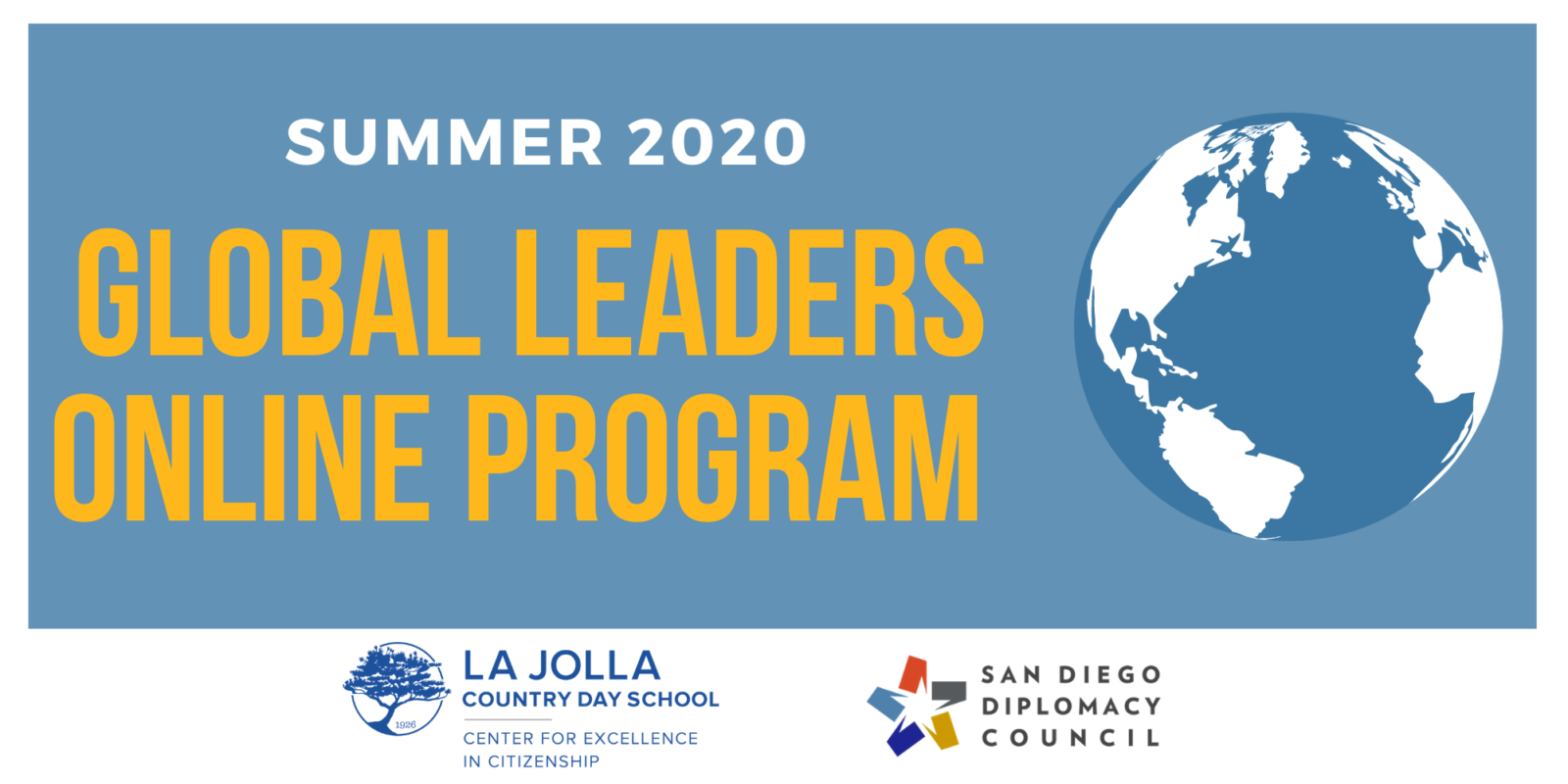
What happens when all our programs get canceled? We invent our own.
We can’t speak for everyone, but the global pandemic has thrown the Diplomacy Council a curveball. Our 2020 calendar was set to be filled with international cohorts and hosts of global leaders. Groups were scheduled to explore topics from STEAM education to Migration, Foreign Policy to Government Accountability. Sadly, none of these programs happened.
But we are not one to admit defeat! The Diplomacy Council did not celebrate its 40th-anniversary last year only to shut up shop 12 months later. Our work is still important. In fact, we think it’s more important than ever.
We pride ourselves on facilitating conversations to eradicate cultural barriers. Rather than seeing the pandemic as a barrier to our mission, we approached it as a means to share our work with an even broader community. With a little help from technology and the internet, we began preparations to bring diplomacy straight to our community, in the comfort of their own home.
Enter: the Global Leaders Online Program
Our investigations led us to create the Global Leaders Online Program – a brand new initiative for high school students with an interest in the world around them. Partnering with La Jolla Country Day School (LJCDS) to deliver four week-long online modules, we quickly developed an incredibly exciting program – one that was set to hold its ground against any of our previous work, in-person or otherwise.
For an overview of the program, see our original announcement post here.
July was an intense month of long hours, tight deadlines, and enough Zoom hours logged to last a lifetime. But it was also a month full of important debate, thorough investigation, new connections, and – thanks to the incredible capabilities of the students – rekindled hope for the future.
The Stats
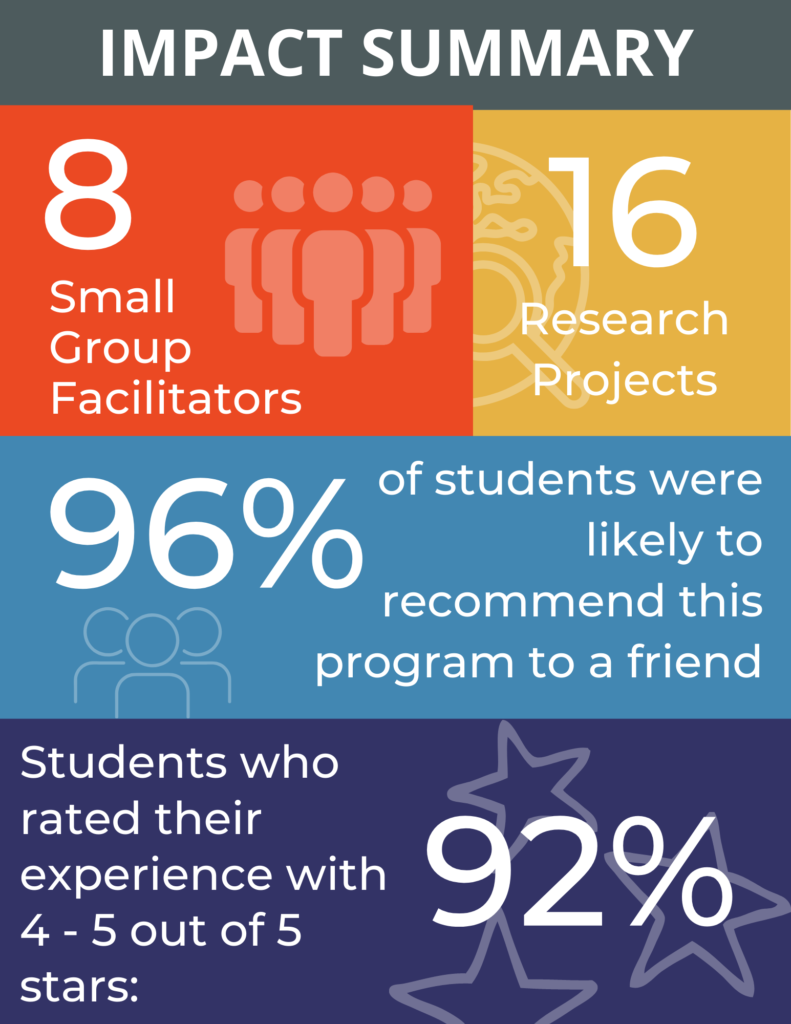
What Did The Students Have To Say?
I loved this experience and it definitely motivated me to be more involved in politics so thank you!
Meeting new kids in a time of only having family interactions was a great relief.
I liked how we got to hear from so many people and we were able to learn new things from them.
The teachers and small group leaders were all awesome and kind! It was great to have this experience even if it was online.
Thank you, Mr. Jonathan Shulman, for being so amazing! I felt so supported throughout this process, and everyone felt like their ideas could be heard. The entire program was so engaging, and I am truly hoping there will be more in the future.
The Speakers
We could write a whole book about the incredible insight and knowledge our Summer Program speakers brought to discussion. The caliber of guests who agreed to join us added such a unique and valuable component to the student’s experience. We are immensely grateful to them all!
Dr. Ezra Barzilay: Country Director of the CDC Office, Ukraine
Leslie Bassett: U.S. Ambassador (retired) to Paraguay
Wesley Danskin: Research Hydrologist with the U.S. Geological Survey’s California Water Science Center
Serge Dedina: Co-Founder and Executive Director of WILDCOAST and Mayor of Imperial Beach
Dulce Garcia: Executive Director of Border Angels
Krisanne Hernandez: U.S. Customs and Border Protection Agent
Wendy Lee: U.S. Customs and Border Protection Agent
Caron de Mars: Senior Advisor at the International Joint Commission
Dr. Rupal Mehta: Associate Professor at the University of Nebraska-Lincoln
Mark Melamed: Senior Director in the Global Nuclear Policy Program
Richard Norland: U.S. Ambassador to Libya
Michael T. Pascual: Senior Director of Government Affairs at Gilead
Eric Rubin: President of the American Foreign Service Association
Mandy Sharma: Chief of Staff to the MInisters of Research Innovation and Science, Environment and Climate Change
Rick Wayman: President & CEO of the Nuclear Age Peace Foundation
Nathan Williams: Head of the UNHCR Office in San Diego
Dr. Tom K. Wong: Associate Professor at the University of California, San Diego
A special thank you to our Small Group Facilitators, for being such great sports and incredible resources. Your contributions were profound.
The Projects
A large component of each program module saw the students explore the week’s global issue in context. The purpose of the small group projects was twofold. First, they enabled a deeper dive for students to unpack specific issues and circumstances that applied to particular case studies. Second, they added an interactive dimension to the Summer Program and enabled the students to get to know each other better.
Each week, we introduced a different project overview and assigned students to groups of 5-6, along with one of our Small Group Facilitators (a group of incredible assistants we recruited to ensure the students got the most benefit out of the program). At the end of the week, the students shared a presentation with the rest of the class, with everyone presenting on a particular point of interest related to their assigned country.
You can see sample presentations here and here.
We were conscious that students were giving up precious time of their summer vacation to join us for the Global Leaders Online Program. Rather than overload students with a ton of homework, extra activities, and reading materials, we kept work outside of program hours to a minimum. Students were not expected to work on these projects outside of the times allotted during programming – which made the end result all the more impressive. With limited resources and preparation time, and after learning about these issues only a few days prior, students closed the week with an impressive display of knowledge and effort.
The Diplomacy Simulations
What greater way to enable students to understand the process of diplomatic negotiations and international relations than asking them to solve a real-world problem?
We knew that we wanted to use diplomacy simulations in the Summer Program since its conception. Thanks to the National Museum of American Diplomacy, we had a plethora of preexisting scenarios to choose from. With imaginary countries and stakeholders vying to state their opinions in invented schemes mirroring real-life crises, the simulations were one of the most successful components of the program.
While traditionally conducted in-person, the simulations proved to be a surprisingly adaptable activity for online learning. Thanks to the flexibility of breakout rooms, we created planning meetings for each stakeholder group to formulate their stance, and negotiation rooms for parties to progress towards a solution. The simulation also involved meeting all together for formal negotiations, and presentation of plans and proposals.
The purpose of the simulations had nothing to do with reaching a conclusion at the end of negotiations. In fact, only one out of four weeks closed with anything resembling an end to discussions. For the other three weeks, more rounds of negotiation were needed to ensure all parties walked away content with the outcome. But contentment wasn’t the aim of the game. Negotiation was. Simulations reaching neat conclusions were of no concern to us. The true purpose of them was to enable students to undertake a negotiation – and undertake they did.
The Verdict
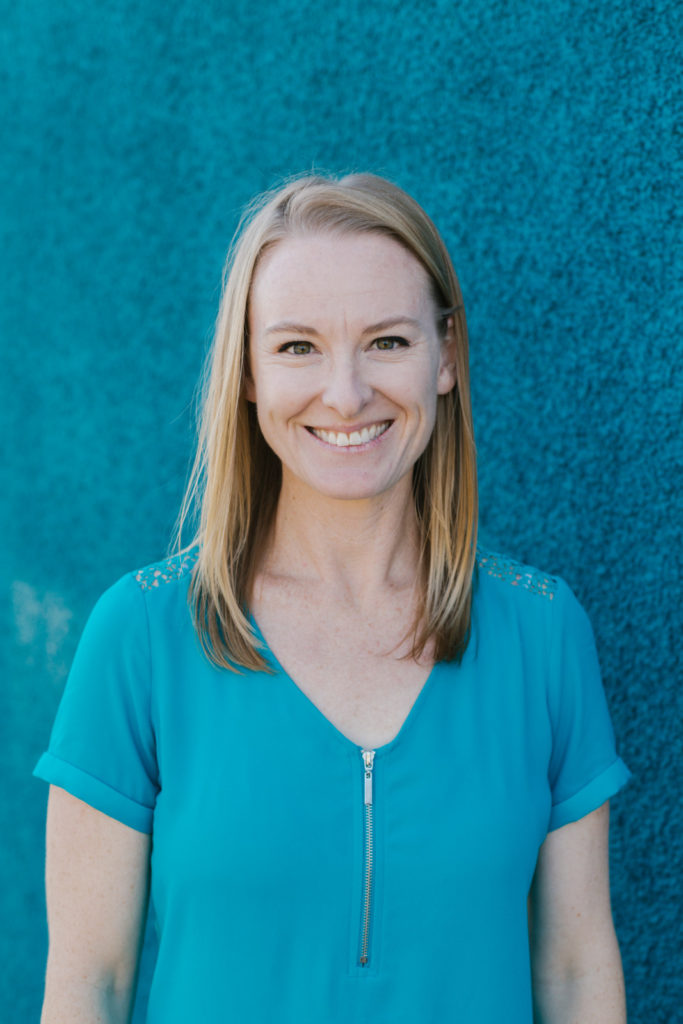
Jessica Frank, Program Director:
Amazing. Inspired. Hopeful. Proud.
These are some of the words that come to mind in reflecting upon our Global Leaders Online Program. For 4 weeks in July, my colleagues and I at the San Diego Diplomacy Council, in partnership with La Jolla Country Day School, had the privilege of spending our mornings with 20-30 promising high school students from the San Diego region and the abroad. It was truly a ray of light in a very challenging time for our community and world.
Each week focused on a current topic of tremendous importance to our globe: peacekeeping in a nuclear world, resource scarcity, pandemic diplomacy, and immigration and borders. These are topics that I personally had not engaged with until college or even at the grad school level. They are challenging, real-world topics that the brightest minds of our globe at the highest levels grapple with.
Undaunted, our future global leaders rolled up their sleeves and delved into the curriculum. They listened intently as guest speakers shared their perspective and experience as experts in the field, and asked incredibly insightful questions.
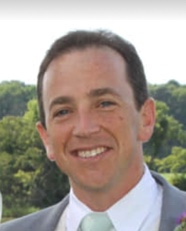
Jonathan Shulman, Academic Director:
What was most exciting, engaging, inspiring and enlightening about the Global Leaders Online Program was the students of diverse backgrounds and geographical locations all coming together every morning for discussions of profound importance to the future of our planet. Despite the 9 am start on a summer’s day, the students brought their A-game with a powerful authenticity to every discussion, guest speaker, diplomatic simulation and group project. It may be the understatement of the century to say that 2020 has been a challenge, but each day with the students was filled with hope and promise.
It is said that the role of a teacher is to make himself increasingly irrelevant to his students. I would say that by the end of each week’s program, the students had made it clear through their actions and poignant contributions that Jessica, Lulu and I were no longer necessary as they take on the world’s toughest challenges. And we couldn’t possibly ask for more than that!
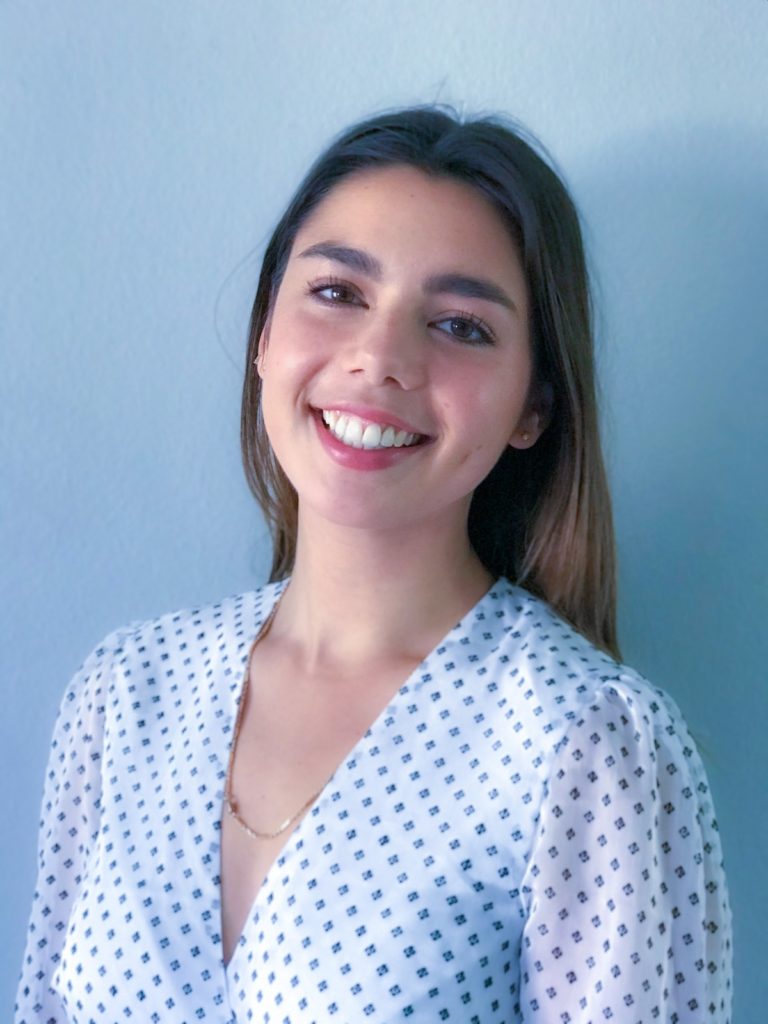
Lulu Bonning, Program Officer:
The best 50 hours of 2020 so far have been the 50 hours of the Global Leaders Online Program. To say I enjoyed the experience is an understatement; to say that I’m proud of it, an even bigger one.
This may be stating the obvious, but the unrivaled highlight of the experience was the students. To be honest, I half expected that we would show up on Monday morning of the first week, to have only the three of us – Jonathan, Jessica, and myself – show up. Thankfully, that proved to be a fear as unfounded as hosting a party and receiving no guests. I could not have been more wrong! Not only did students show up, but they showed up with interest, enthusiasm, and insight. The students chose to spend their summer vacation with us, learning about some of the world’s most pressing issues. I could not have been more impressed by their dedication and resolve.
While it’s a great relief to have the success of the Summer Program under our belt, I am already itching to explore how we can keep this momentum going. From the challenge of having all in-person programs canceled came an incredible opportunity to take a risk and reach a new audience. I can’t wait to see what’s next …
Looking Forward
Which brings us to the present day, and the imminent Global Leadership Youth Program!
The Program is a progression of the Summer Program, giving globally-minded teens an opportunity to connect with international leaders and cultures while contemplating questions that plague the world’s most critical thinkers. If you’d like to find out more about the Global Leadership Youth Program, check out our event page here.



Leave a Reply